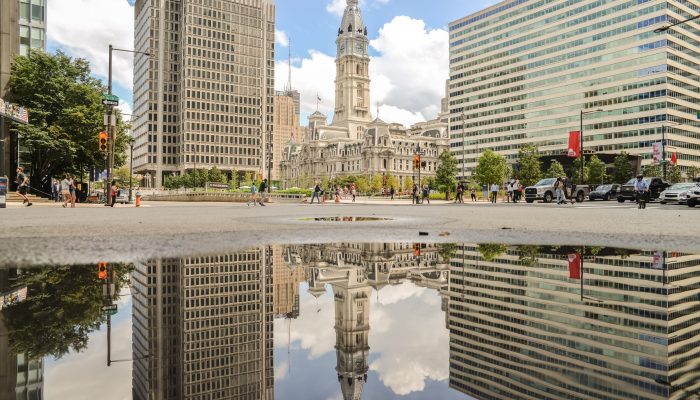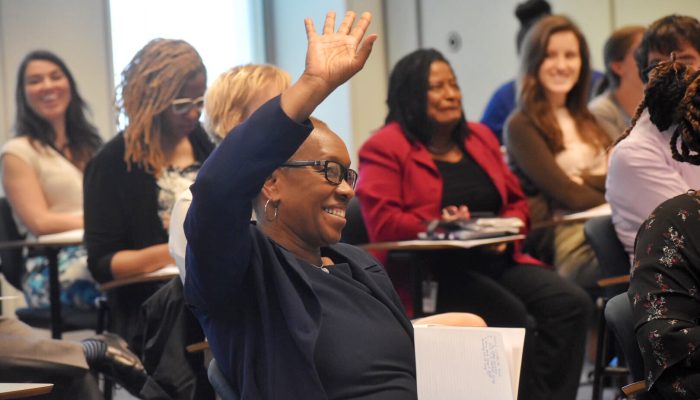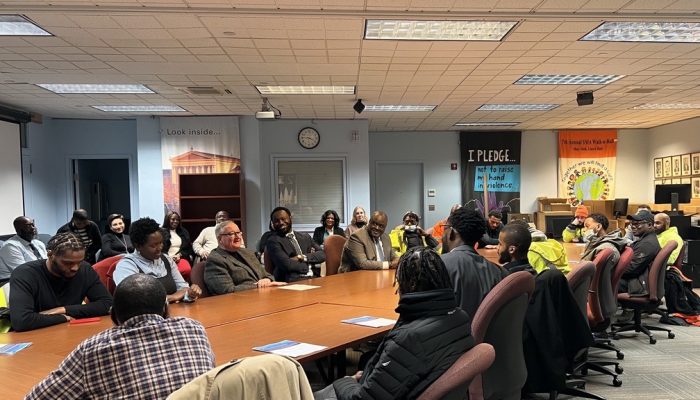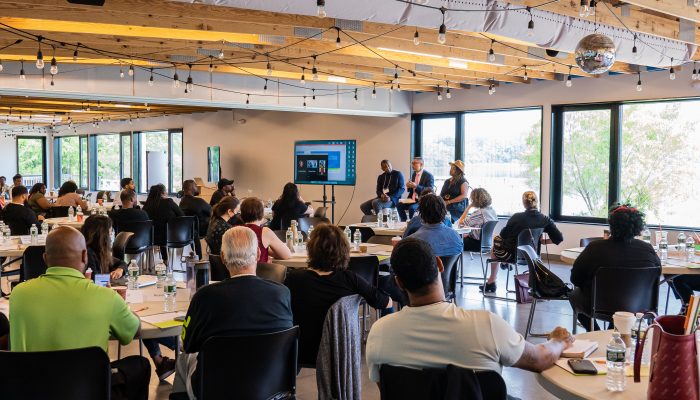This post was written by Dave Kinchen, Office of Violence Prevention
“They shot William!”
That is the “frantic” message Stanley Crawford described getting from family members after learning his 35-year-old son was shot and killed in 2018. Crawford, now an anti-gun violence activist, told his story during a press conference held by the Kenney Administration and City Council members who announced the filing of a lawsuit against the Commonwealth of Pennsylvania, so that local governments like the City of Philadelphia can do more to protect residents from gun violence.
Crawford said he had a choice: keep watching news coverage of one homicide after another homicide or get off the couch and take action. He chose the latter.
“They arrested somebody for the murder from my son,” Crawford told the Office of Violence Prevention. “What I learned from the course of this two years of the murder of my son, gives me more of an interest in doing whatever we can do to stop the murder,” he said.
That is one reason why Crawford founded the Black Male Community Council of Philadelphia, which he said helps mediate community conflicts, and conducts neighborhood clean up events like the one that 6abc followed his team on at 18th and Wingohocking in September.
“It gives us an opportunity to engage with the younger brothers that’s mostly participating in the violence,” Crawford said.
Research also shows addressing blight can help communities reduce violence, especially when applied to other evidence-based violence prevention strategies. This is one of many strategies that support the Philadelphia Roadmap to Safer Communities.
“Most people might say, ‘well…Mr. Crawford what does clean up got to do with violence?’ It gives us an opportunity to be present to communicate with the younger brothers, and also gives us an opportunity to show our younger brothers that we the elders; our older brothers care about the condition they are living in.”
Crawford continued, “We were down at 20th and Dauphin and I had a chance to engage a young brother about the importance of taking care of his child. He said he’s the single parent of a one-year-old. Had we not been out there cleaning, I would not have had the opportunity to engage this young brother and give him some type of hope and some type of inspiration about what he was doing.”
Crawford credits the $20,000 in grant funding issued by OVP with helping purchase quality clean up equipment, telling 6abc, “If you come out in a crisp clean community, for those who do come out in a clean community, your energy is not as disturbed. By cleaning up it brings a rejuvenation to the spirit of the people.”
The BMCC is just one of dozens of organizations to receive their part of nearly $2 million in total funding awarded as part of the Targeted Community Investment Grant program, one of the key strategies in the Roadmap.
Because the City cannot prevent and reduce violence alone — and there is strong evidence that supports the idea that “residents and local organizations can indeed “police” their own neighborhoods and control violence” — OVP is helping to fund these grassroots efforts so individuals and groups are better positioned to do their part.
Grant funding is awarded to individuals, groups and community-based organizations in places that experience high rates of gun violence. The awards ranged from $1,500 to $20,000 in the most recent round closed out earlier this year.
Funded projects include both new and ongoing efforts offering mentoring, career skill-building, sports leagues, and groups that connect returning citizens to positive support in their communities.
Nearly 50 neighborhood groups received a combined total of approximately $1 million in funding in the initial round in April 2019.
The second funding round, awarded in December of 2019, supported projects in the spring and summer of 2020, and helped to increase access to trauma-informed care for those affected by violence, expanded grief support programming for impacted families, and provided job training for young adults to become positive role models in their neighborhoods. The money also directly supports workshops and “safe spaces” for young men who are at the highest risk of gun violence.
The TCIG program is an important part of advancing the Roadmap’s goals of creating Connected & Thriving Youth, Young Adults & Families; Strong Community Engagement & Partnerships; Coordinated City Services & Planning; and Safe & Healthier Neighborhoods.




